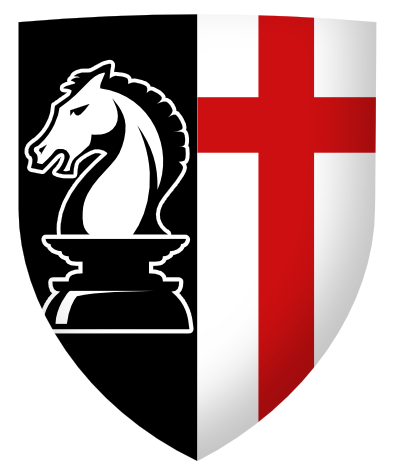Training & Formation
Each Knight undergoes a three-tiered, three-phase program of formation and training that touches on every aspect of manhood: physical, spiritual, and intellectual.
Formation and training is a three-year process.
Phase 1
The primary focus of Phase 1 training is the physical development of the trainee. During this phase the trainee undergoes rigorous physical Fitness & Endurance training, Movement & Maneuver training, and learns basic hand-to-hand combat skills incorporating a variety of martial arts.
The trainee also begins training in outdoorsmanship - mastering the basics of self-sufficiency, resiliency, grit, trust in Divine Providence, and simplicity.
Finally, the trainee learns basic Hospitaler skills - tackling First Aid & Emergency Medical skills, safety, and Lifesaving & Rescue skills.
To complement his physical training, the trainee is also formed intellectually and spiritually. Formation classes include
Intro to Chivalry and Knighthood
Intro to St. Louis de Montfort's The Secret of the Rosary
Guided reading through Genesis 1- 4 and the New Testament
Guided reading through The Love of Eternal Wisdom
Finally, the trainee commits himself to praying the Rosary daily.
Phase 2
Building on the training and formation of Phase 1, Phase 2 training introduces the trainee to more intense physical exercise and advanced manly skills, while also diving deeper into the Church's intellectual tradition and growing in prayer.
Advanced physical fitness
Intensifies the fitness program begun in Phase 1. Advanced fitness training may include Crossfit for those who are able to endure its rigors. It also includes advanced Movement & Maneuver training include climbing, elements of parcour, defensive driving.
Skills training
Includes skills every man should know. The trainee will learn basic mechanics, carpentry, engineering, homesteading, and bugout prepping.
Combat training
Includes intermediate hand-to-hand combat and introduction to melee weapons focused on Historical European Martial Arts (HEMA): Sword, Shield, Spear, and Hafted Weapons. The trainee will also learn to use improvised and alternative weapons.
At this stage, the trainee is introduced to basic firearm safety and use.
Intellectually
The trainee continues his journey into the Church's intellectual tradition. He completes his guided reading of The Love of Eternal Wisdom and begins studies in Church history, the theology of Grace & Sacraments, and Christian morality. Lastly he begins introductory studies in Philosophy.
In addition to his personal daily recitation of the Rosary, the trainee strives to introduce a daily family Rosary into his family's routine. He may also consider learning to pray the Rosary in Latin.
Phase 3
1) Formation class: complete Contra Mundum module, Course on Chivalry, Mariology, The Secret of Mary, & True Devotion to Mary (prepared to make consecration)
2) Goal: pray all 15 mysteries of the Rosary per day (5 mysteries prayed w/ family)
3) Continue/maintain personal Physical fitness training
4) Advanced firearms with maneuver, less lethal options, certification for state concealed carry permit, certified as an Armed Security Guard by the state
5) Tactics & battle drills (home defense, church defense, guarding a school, neighborhood defense, defense of Lifeguards and Eucharistic processions, dealing with rioters attempting to destroy/vandalize church property, communications plan, Situational Awareness training)
The Quest

